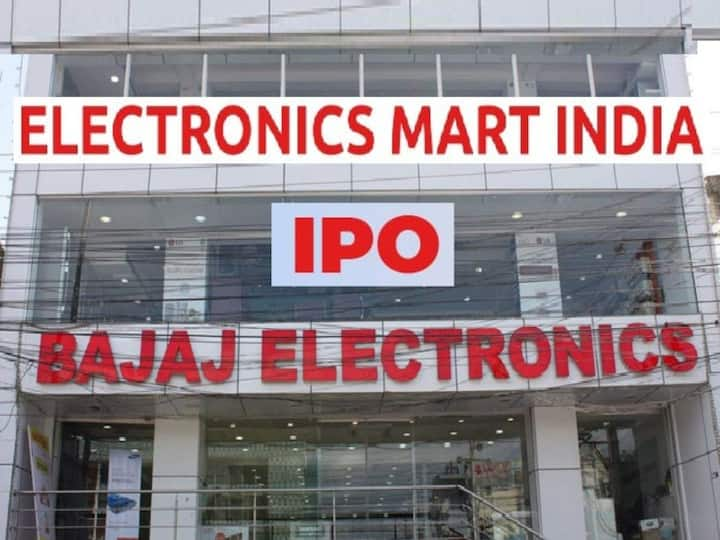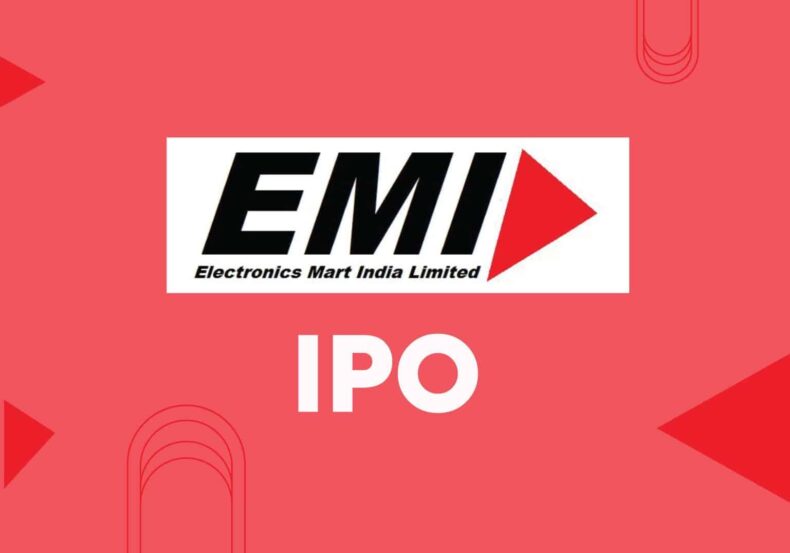The public offering of Electronics Mart India Limited ended with an exhilarating three-day subscription on Friday, with the issue being subscribed to 71.93 times on the last day of bidding. 169.54 subscriptions were received for the qualifying institutional buyer component. Non-institutional investors’ reserved part was subscribed to 63.59 times. 19.71 subscriptions were made to Retail Portion.

On the final day of the offer on Friday, the Initial Public Offering (IPO) of consumer goods retail chain Electronics Mart India received 71.93 times the number of subscriptions. In contrast to the 6.25 crore shares that were on sale, the IPO got offers for 449.53 crore shares.
Retail Individual Investors (RIIs) obtained 19.71 times as many subscriptions as Non-Institutional Investors (NIIS), who received 63.59 times as many, and Qualified Institutional Buyers (QIBs), who received 169.54 times as many.
With no offer for-sale component, the Electronics Mart India IPO comprises a new issue of equity shares totaling 500 crore rupees. The offer’s price range is between 56 and 59 per share. According to the company’s draught IPO filings, the net proceeds will be utilized to pay off debt, support additional working capital requirements, fund capital expenditures, and for other business objectives.
Electronics Mart India Ltd (EMIL) was founded by Pavan Kumar Bajaj and Karan Bajaj as a private company under the name Bajaj Electronics to handle their retail electronics and consumer products business.
With the exception of two specialty stores under the name “Kitchen Stories,” which cater to kitchen-specific needs, and one specialty store format under the name “Audio & Beyond,”, all of its multi-brand stores run under the moniker “Bajaj Electronics,” which concentrates on high-end home audio and home automation systems.
Electronics Mart India Limited (EMIL) is the fourth-largest retailer of electronics and consumer goods in India. It operated and maintained 112 stores as of August 31, 2022, mostly in the states of Andhra Pradesh (AP), Telangana, and Delhi NCR, throughout 36 cities and urban agglomerations, with a total retail business area of 1.12 million square feet (MSFT) (NCR). The items EMIL sells are sourced from a wide range of vendors and OEMs, some of whom the company has had a long-standing connection with for more than 15 years. EMIL does not engage in any manufacturing. It runs both exclusive brand outlets (EBOs) and multi-brand outlets (MBOs), both of which stock a wide variety of electrical products.
According to Nirmal Bang Securities, Electronics Mart benefits from favorable pricing and margins from brands because of its size. The company has also shown superior growth among all other major consumer durable and electronics retailers in India, and it was able to produce a respectable return on equity of 17.4% during the Covid-affected year of FY22.

Regarding the company’s revenues, they have recovered from the effects of COVID-19 and are back on pace. For the fiscal year that ended in March 2022, the company recorded revenues of Rs 4,353 crores. This increased to Rs 1,410 crores in the first quarter of FY23. For the entire year and the first quarter, the company reported a profit after tax of Rs 103.9 crores and Rs 40.65 crores, respectively.
Additionally, margins at the net level have increased. In the near future, this company should expect margins in the range of 2.75 to 3.00%. Expanding the company’s revenue from the new stores that are opening will be crucial. There would be a mixture of owned and leased properties in these stores. The theory behind owning real estate is that prime sites or flagship stores develop their own identities over time.
The need for mobile devices is the main driver of corporate growth, and with the deployment of 5G just around the corner, a surge in sales will result from phone replacements. The issue is reasonably priced and offers potential for growth both immediately after listing and over the next few years.













